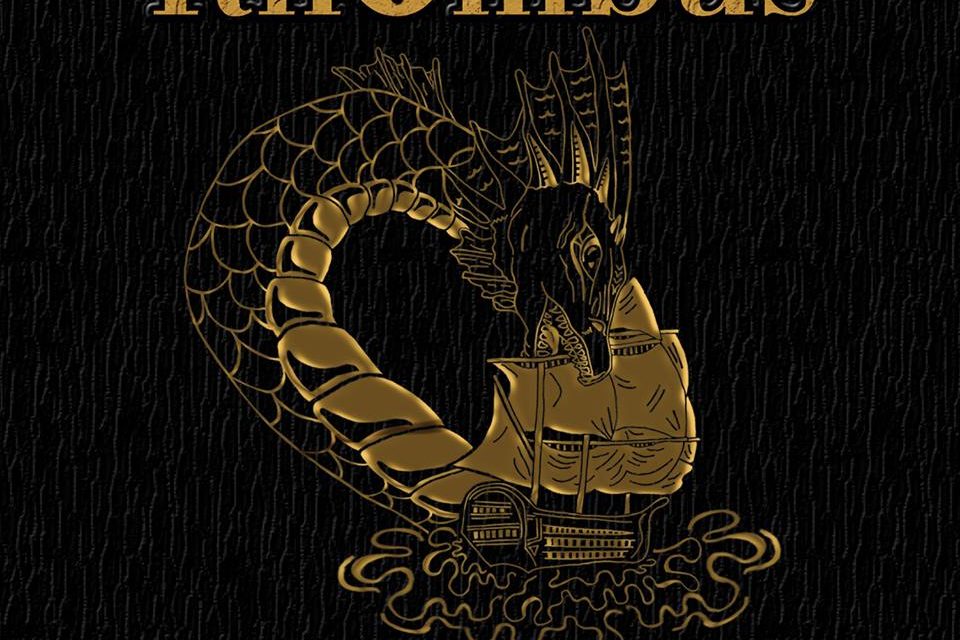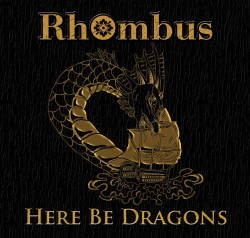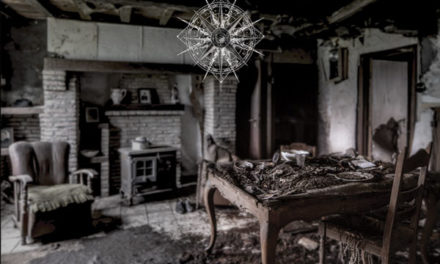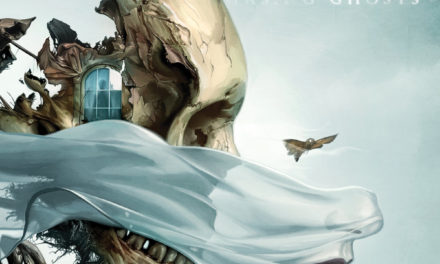Rhombus
Here Be Dragons
Models Own Records
The setting couldn’t have been better for my first pass at Here Be Dragons: I’d just finished a long work week, and stepped out of the metro station onto Commercial Drive to be greeted by a crepuscular summer breeze, an orange and purple sunset cast across Vancouver’s boho paradise. Rhombus’ chiming, nostalgic sound was just getting going, some melodic gothy guitars were just taking flight…and then I promptly had to hit pause to duck off the street and share a bottle of oh so rare and dear Brooklyn Black Ops with friends. I’m sure a band with a pint glass on their crest would have understood. A few uninterrupted listens later, I’m happy to report that Rhombus have recaptured the musical success of Open The Sky, while bringing a slight change in poetic tone.
It’s apparent from the get go that this is a more fantastic and romantic listen than its predecessors, as the title’s hints of uncharted and dangerously exotic territories suggests. Does this cost Rhombus some of the blokish “that crew from the local” charm they’ve built up over previous releases? A bit, but there’s plenty to fill that seat at the pub. While miles away from the playful goofing (goffing?) of their earliest work, opener “Fallout” almost consolidates the anthemic ambition of Open The Sky in one single move, with synths and guitars deftly taking turns and working together to build a chorus you’re already humming along with midway through the first pass. History, the future, regret, possibility: all are touched upon and returned to over the course of Here Be Dragons.
It isn’t just the thematics of the songs which have taken on a more wistful, timeless tone. The arrangements find themselves adorned in more violins, mandolins, and folky sing song melodies. The title track has all of those in spades, but never feels truly out of character for the band, and the weaving of Edward Grassby and Mya’s vocals – possibly the band’s greatest strength and the quality which first drew me into Rhombus’ music – is still used to great effect. I’m not sure if it’s because of the strength of material or the opening up of the toolbox, but Here Be Dragons suggests the power and and spirit of some of the classic second wave goth bands paradoxically just as Rhombus seem to be truly flexing their own creative muscle: Ghost Dance and Die Laughing come to mind on “Tomorrow’s Yesterday” and “The One Thing”, for example.
I think what might be most impressive about Rhombus, now more than ever, is their ability to instantly communicate the markers of classic goth rock to aficionados while challenging the range of emotions and moods the genre’s associated with. Taking its dreamier moments as a compass point, Rhombus move into glorious, melodic realms; waters which, if not entirely unexplored, are certainly less-traveled, and rarely with this much aplomb.






